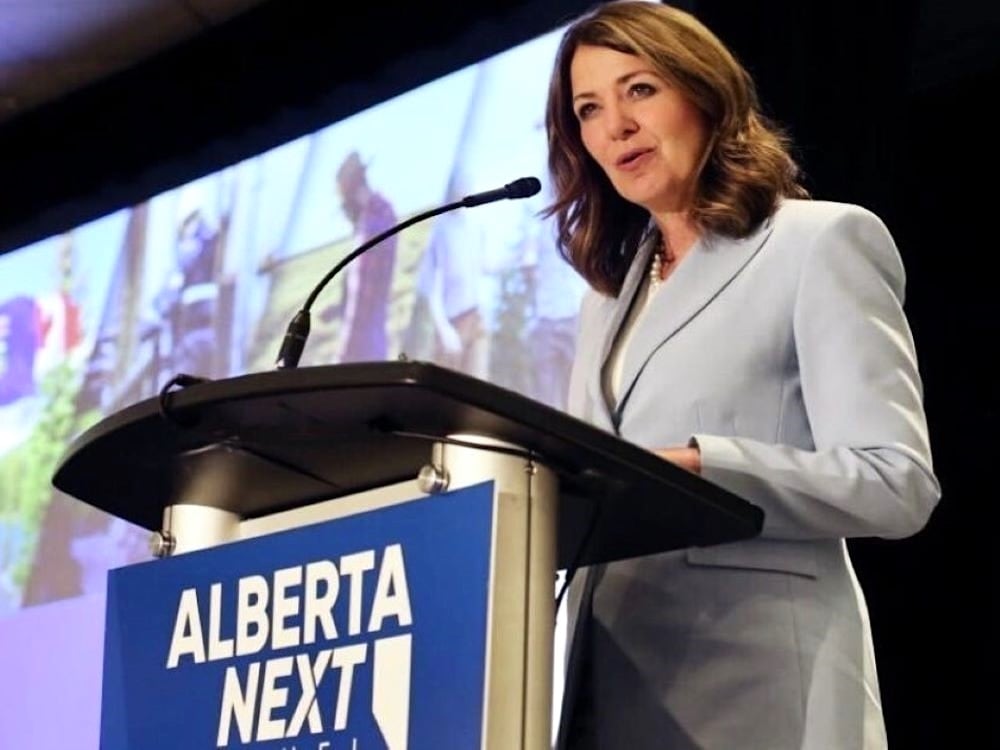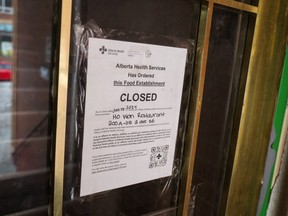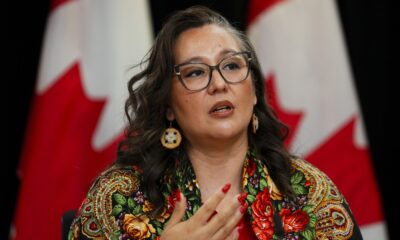Top Stories
**Alberta Next Panel Faces Backlash Over Immigrant Blame Game**

UPDATE: In a controversial turn of events, the Alberta Next Panel, led by Premier Danielle Smith, has ignited outrage by placing blame on immigrants for the province’s economic struggles. This incident, which unfolded at an event in Red Deer on July 15, 2025, is drawing parallels to past anti-immigrant sentiments resurfacing in Alberta politics.
During a panel discussion attended by around 450 people, panelist Sumita Anand, a first-generation immigrant, claimed that recent immigrants are “taking away our children’s and grandchildren’s jobs.” This assertion has prompted immediate backlash from community leaders and immigration advocates, who argue that such rhetoric fuels discrimination and fear among immigrant populations.
The Alberta government is currently facing a staggering projected deficit of $6.5 billion for the fiscal year, a dramatic shift from an $8.3 billion surplus last year. Critics, including immigration scholar Audrey Macklin, point out that scapegoating immigrants is a historical tactic used by populist politicians to divert attention from economic mismanagement. Macklin states, “Anti-immigration is always a cheap and available tactic for populist governments,” emphasizing that blaming immigrants for economic woes is an age-old narrative that fails to address underlying issues.
At the panel, attendees were shown a video that directly links immigrants to rising housing costs and unemployment rates, which currently stands at 8.4% in Alberta. The video states that if newcomers do not meet the province’s economic qualifications, social services may be withheld from them. This alarming message has exacerbated fears within immigrant communities, with reports of increased hostility and harassment linked to the panel’s discussions.
Notably, many attendees expressed their grievances without any pushback from Smith, who did not challenge the anti-immigrant sentiments expressed during the open-microphone session. Comments from individuals like Mark, who claimed immigrants are unfairly benefiting from social services, highlight the divisive atmosphere that has emerged.
The Alberta Next initiative has been positioned as a means to gather public feedback on pressing issues, including immigration reform. However, critics argue that it has instead become a platform for propagating fear and division among communities. Macklin asserts that such narratives encourage existing immigrants to turn against new arrivals, perpetuating a cycle of xenophobia.
Reports indicate a growing sense of anxiety among immigrants in Alberta, with newcomers experiencing significant emotional distress due to rising hostility. Shamaila Akram from the Calgary Centre for Newcomers reported that clients have been experiencing severe anxiety and panic attacks, directly correlating the uptick in harassment to the rhetoric coming from the Alberta Next panel.
As this situation continues to unfold, observers are calling for immediate action to address the harmful narratives surrounding immigration. The implications of this panel’s discussions could have lasting effects on Alberta’s social fabric, as communities grapple with increased fear and division.
Next Steps: The Alberta government must reconsider its approach to immigration and ensure that discussions surrounding economic challenges do not scapegoat vulnerable populations. Community leaders and advocates are urging for constructive dialogue focused on inclusivity and collaboration rather than division.
This story is developing, and further updates will provide insight into how the Alberta government addresses these urgent concerns. Stay tuned for more information as it becomes available.
-

 Politics4 weeks ago
Politics4 weeks agoSecwepemc First Nation Seeks Aboriginal Title Over Kamloops Area
-

 World5 months ago
World5 months agoScientists Unearth Ancient Antarctic Ice to Unlock Climate Secrets
-

 Entertainment5 months ago
Entertainment5 months agoTrump and McCormick to Announce $70 Billion Energy Investments
-

 Science5 months ago
Science5 months agoFour Astronauts Return to Earth After International Space Station Mission
-

 Lifestyle5 months ago
Lifestyle5 months agoTransLink Launches Food Truck Program to Boost Revenue in Vancouver
-

 Technology3 months ago
Technology3 months agoApple Notes Enhances Functionality with Markdown Support in macOS 26
-

 Lifestyle3 months ago
Lifestyle3 months agoManitoba’s Burger Champion Shines Again Amid Dining Innovations
-

 Top Stories2 months ago
Top Stories2 months agoUrgent Update: Fatal Crash on Highway 99 Claims Life of Pitt Meadows Man
-

 Politics4 months ago
Politics4 months agoUkrainian Tennis Star Elina Svitolina Faces Death Threats Online
-

 Sports5 months ago
Sports5 months agoSearch Underway for Missing Hunter Amid Hokkaido Bear Emergency
-

 Politics5 months ago
Politics5 months agoCarney Engages First Nations Leaders at Development Law Summit
-

 Technology5 months ago
Technology5 months agoFrosthaven Launches Early Access on July 31, 2025





















